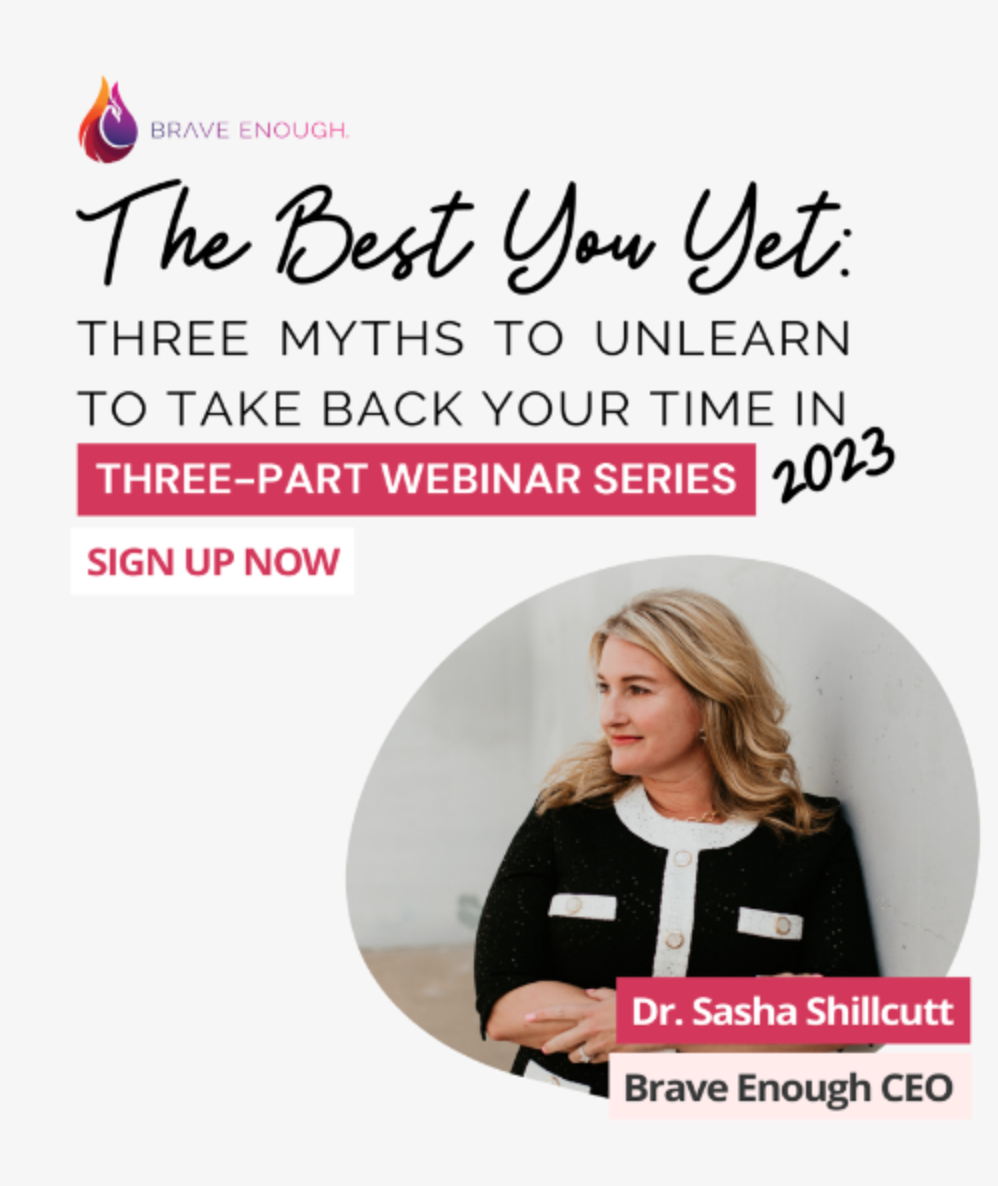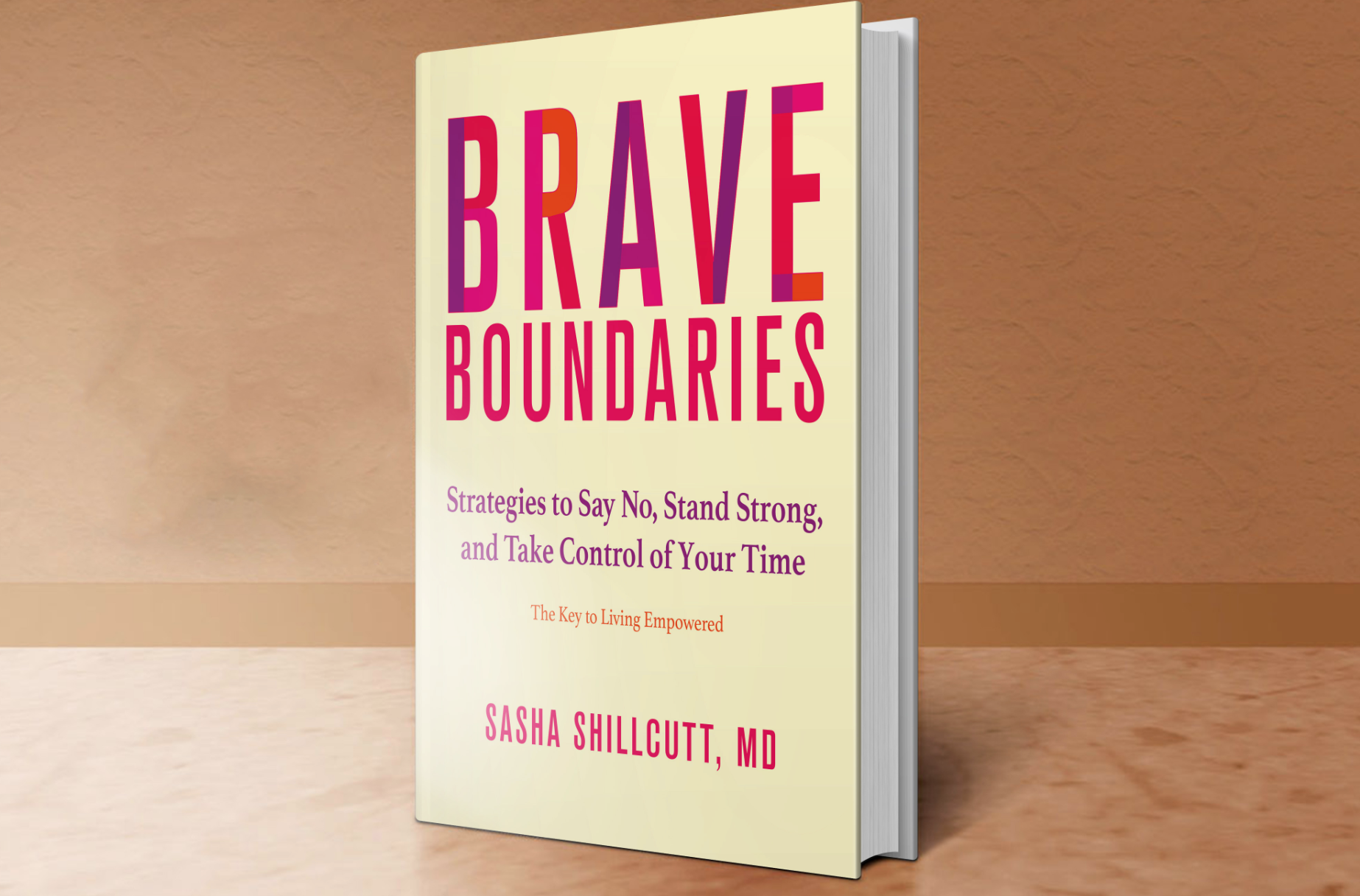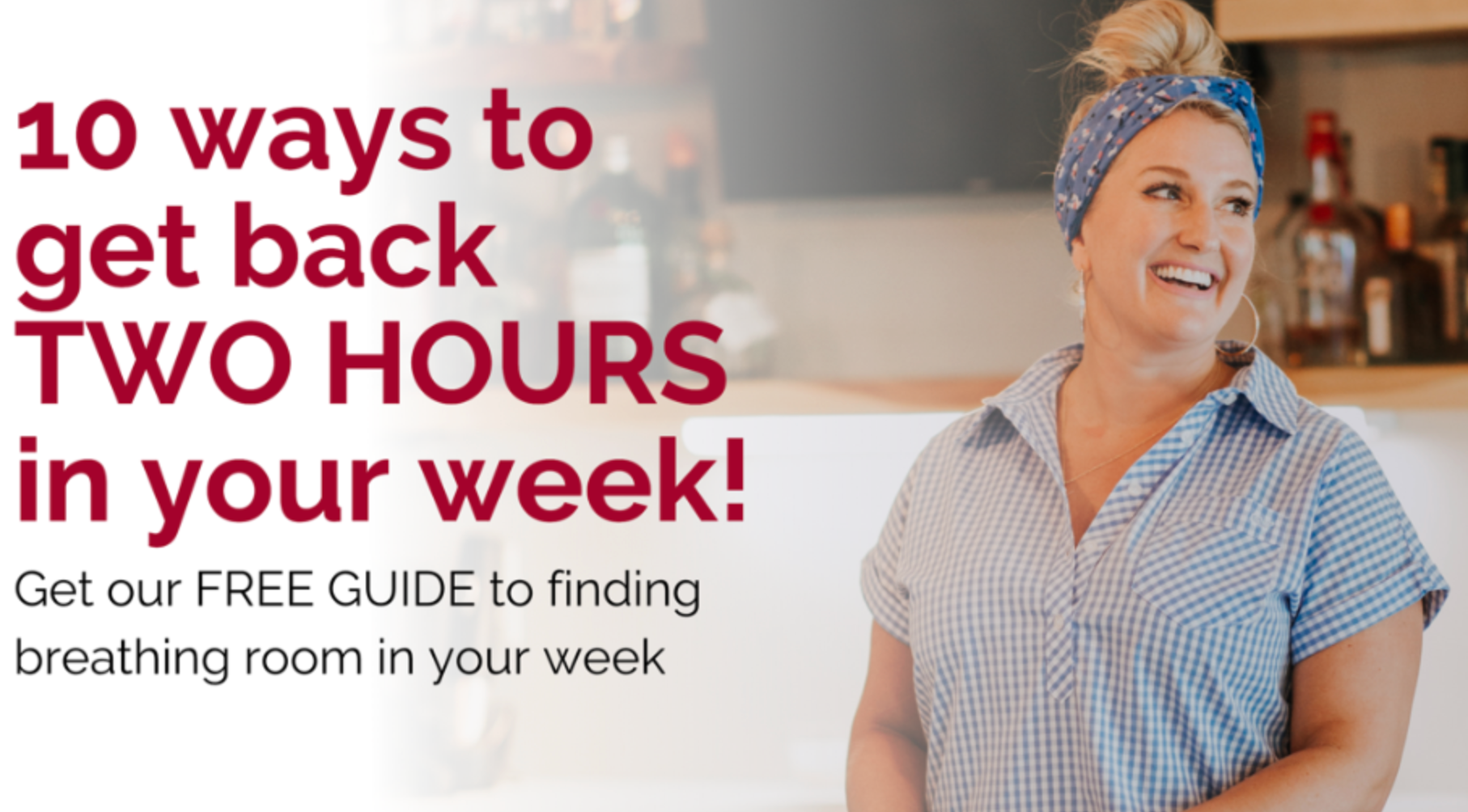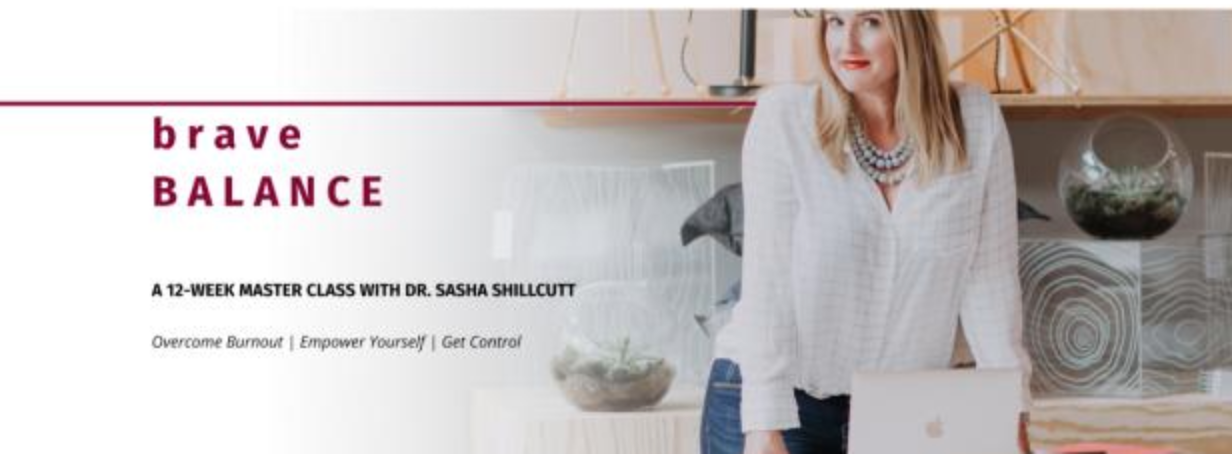3 Ways to Say No Without Guilt as a Woman Physician
Jan 27, 2023
Saying no is a skill. As busy working women, we often find ourselves having to say no multiple times a week if not daily. And while many of us have heard “No is a complete sentence”, what we are not taught is how to say no, and NOT FEEL GUILTY for doing so. When we finally get the courage to say no and set boundaries we need to live in a way that honors our own priorities, we then are stuck with the aftermath of saying no: GUILT. I have coached many women through burnout and one of the most important tactics to learn is how to say no and move on without guilt. Let’s get into it!
Why do we feel guilt?
Guilt is a normal emotion we feel when we have done something wrong or failed to meet an expectation. As a woman physician, we can feel guilty if we have adopted the false belief that we must always be available for the needs of others.
For years working in the field of medicine, as a woman physician I felt like I had to always say YES to every task, opportunity, extra call, paper, manuscript, lecture, and all the other things I was asked to do. I wanted to advance in my field, be respected and make sure everyone knew I was serious about my job. Saying “no” made me feel like I was disobeying; I was socialized as a woman to say yes. And, I should be GRATEFUL. I was even considered for extra work, even if it was unpaid work. Here is what happened:
● I’d say no…and instantly feel guilt.
● I would then OVER commit and OVER deliver in other ways out of guilt.
● I would replay my “no” and doubt myself and feel shame over and over
● The guilt, followed by shame, made me feel constantly “less than” for simply saying no to something that I was not able to do, or that didn’t fit in my career focus.
Here’s the thing: we should NEVER feel bad about setting boundaries and saying no to things that do not serve us, that we are not paid to do, or that we simply can’t do due to time or energy or skill restraints.
By recognizing guilt and understanding that it is part of being human, we can become more compassionate and understanding of ourselves and others. Saying no without guilt is a skill, so give yourself grace as you work on this!
Why Saying “No” Matters?
We’ve all been there, we’ve all said things like these:
● I’m afraid I can’t say no.
● I feel like saying no is so hard.
● I don’t want to let anyone down.
● I’m so worried about disappointing people.
● I don’t want to hurt anyone’s feelings.
● I don’t know how to say no without feeling guilty.
● I don’t want to be seen as selfish.
I know the feeling. I have felt these things too. And when faced with pressure to say yes, we often won’t say no because of those feelings.
In the field of medicine, women physicians are faced with these kinds of scenarios every single day. Taking a shift for others, rushing to the hospital when we should be in bed, working on holidays or working overtime, dealing with patients and their family members, and so much more. Could you imagine saying no to these things? It doesn’t seem like it, but YES, it is possible, friend.
While most of these issues are universal, women physicians are more likely to experience them and it can eventually lead to frustration, exhaustion, and guilt. From now on, remind yourself that saying “no” is an important part of having healthy boundaries. It communicates to others that you respect yourself and your time, and that you have limits.
Simply saying no allows us to prioritize our needs and goals, and focus on our well-being. Saying no creates a special space that allows us to reflect on things that matters most, set aside time to do those things and reward ourselves for doing them. It is a powerful way to take back control of our time and our life.
Are you ready to take back your time? Join me in my upcoming free three-part webinar series: The Best You Yet: Three Myths to Unlearn to Take Back Your Time in 2023. Sign up here! It’s FREE.

3 Kind Ways to Say No
We now know that saying no is possible But it is also easier than you think. You have the power, will, and right to do it. If you are in a situation where you feel uncomfortable saying no, these 3 simple ways can help:
Express Grace and Gratitude
A great way to start saying no is by expressing grace and gratitude.
Grace, in the context of saying "no," means being polite, considerate, and respectful when declining a request or offer. Not only are you acknowledging the effort of the person who made the request, you are also showing appreciation for the opportunity.
Why not say something like: “Thank you for thinking of me, but I'm unable to take on this project right now.”
This expresses appreciation for being considered, while also making it clear that you are not able to take it at this time.
When saying "no," expressing gratitude means showing recognition, appreciation, and thoughtfulness even though we are unable to fulfill the request. Expressing gratitude helps to maintain a positive and respectful relationship with the person who made the request, and can soften the blow of having to decline. It simply shows our willingness to be supportive in other ways, even if we can't fulfill the request directly.
So, the next time you have to say no to someone, grace and gratitude, sister.
Boundaries, Boundaries, Boundaries
Boundaries are the limits and rules that we establish in a relationship for ourselves and others. It could be physical, emotional, mental, or time limits. Setting boundaries allows us to communicate our needs while also respecting the needs of others.
Setting boundaries requires the ability to say “no.” It enables us to assert ourselves and make decisions that are consistent with our values and goals. Saying no can be difficult, especially if we are used to pleasing others or are afraid of disappointing them. However, it is important to remember that we have the right to make our own decisions and that it is acceptable to say no to something that does not align with our values or serves us well.
“How do I say no so easily while setting boundaries?”
You can do it! Be assertive and respectful. , communicate your boundaries clearly and remain open to negotiation and compromise, but only when necessary.
10 Quick Steps to Practice Boundaries
Want to know how I do it? Let me tell you my secrets for practicing boundaries:
● Set realistic and achievable goals.
● Take time every day to relax and recharge.
● Don't take on more than you can handle.
● Respect other people's time and opinions.
● Set clear boundaries with others and don't be afraid to enforce them.
● Don't be afraid to ask for help when you need it.
● Respect your body and get enough rest and exercise.
● Don't be afraid to stand up for yourself and what you believe in.
● Know when to take a break and when to work hard.
● Don't be afraid to ask for what you need.
It is important to be aware of your boundaries and limitations – don't overextend yourself, sister. If setting boundaries is something you are struggling with, check out my book, Brave Boundaries, for more guidance and ways how to set boundaries.

Self-Care First
Saying no and prioritizing self-care are two important components of living a healthy, balanced life. Saying no can be difficult, especially when it comes to pleasing others or avoiding potential conflict, however, it is important to recognize that saying no is a healthy way to protect our boundaries, mental health, and physical well-being.
I am a firm believer that self-care is essential for maintaining holistic well-being. When we are stretched too thin, it can be hard to focus on taking care of ourselves and others. This eventually, guilt, stress, anxiety, and exhaustion. By saying no, especially when necessary, we can make sure that we have the time and energy to prioritize self-care. Prioritizing self-care means making time for activities that replenish our energy and help us to feel our best. What does that look like for you? It looks different for everyone, but is equally important for everyone.
For a busy woman, self-care is a luxury. It’s an indulgence. It’s an experience worth taking. For me, self-care is always synonymous with treating myself. It can be anything from eating my favorite food, exercising, or taking time for myself to relax, meditate, and practice mindfulness. If you need any amazing ideas on how to treat yourself, read more here. I share 10 ways YOU can treat yourself!

It is important to recognize that self-care is an essential part of living a healthy, balanced life. Making time for ourselves can help us stay resilient and manage stress in the face of life’s challenges. We are only human and it is okay to make mistakes, say no, and prioritize ourselves first. It is truly essential if you want to prevent burnout and stay focused on your goals and the role you play.
Starting today, choose yourself first. Download my FREE guide to destress and take control here!
Remember that prioritizing self-care and saying no is about taking care of yourself and your needs. Do not feel guilty for putting AND choosing yourself first above anything else.
Let’s Say Yes to Saying “No”
To manage guilt when saying no, remind yourself of the reasons why you need to say no. Practice self-compassion and remember that it is normal to make mistakes or not be able to fulfill every request.
Start practicing saying no without feeling guilty, the Brave Balance: The Brave Enough CME Master Class can help you. It is a weekly coaching and personal career support for women in medicine to learn strategies to say no without feeling guilty, set boundaries for yourself, and have a holistic well-being. You can learn more and sign up here.

Saying no does not make you weak or selfish; it makes you a strong and self-aware individual who values and respects yourself. It is important to remember that we are not responsible for other people's happiness and we don't have to always be available.
Saying no does not mean you don't care about others; it's about finding a balance between taking care of yourself and being there for others. When we take care of ourselves first, we can be present and supportive of others. It's important to understand that saying no is not a negative thing and it doesn't mean that we are closing ourselves off from other people. Instead, it's about setting limits, managing our time and energy, and making sure that we have enough resources to take care of everything and everyone in our life, especially ourselves.
Saying no is not a sign of weakness or selfishness; it is simply a way of protecting yourself and setting limits. When we can say no and still be there for others, it is a true sign of grit, strength, and comfort; truly what a phenomenal woman physician like you, should be!
Feeling stretched thin? I can show you 10 ways to get back TWO HOURS in your week!
DOWNLOAD MY FREE TOOLKIT AND GET BACK HOURS OF TIME IN YOUR WEEK.
YES, YOU CAN.
We hate SPAM. We will never sell your information, for any reason.


